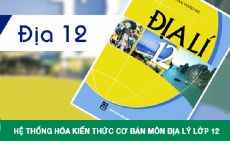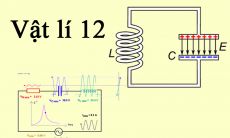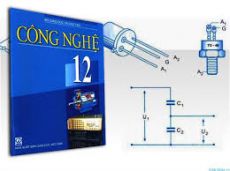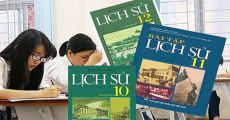Đề thi thử THPT QG năm 2022 môn Tiếng Anh
Trường THPT Chuyên Lê Hồng Phong
-
Mark the letter A, B, C or D to indicate the underlined part that needs correction in each of the following questions
Câu 1:
Find the mistake: Peter and David are playing the piano in the living room yesterday morning.
A. are
B. the
C. in
D. living
-
Câu 2:
Find the mistake: Upon reaching the destination, a number of personnel are expected to change its reservations and proceed to Hawaii.
A. reaching
B. are
C. its
D. proceed to
-
Câu 3:
Find the mistake: With careful arrangement the proposal has received generally favorite reactions from prospective customers.
A. arrangement
B. proposal
C. favorite
D. prospective
-
Mark the letter A, B, C, or D to indicate the sentence that is closest in meaning to each of the following questions
Câu 4:
It was wrong of you to scare your brother like that.
A. You must not scare your brother like that.
B. You ought not to have scared your brother like that.
C. You should have scared your brother like that.
D. You should not scare your brother like that.
-
Câu 5:
"I will pay back the money, Gloria." said Ivan.
A. Ivan apologized to Gloria for borrowing her money.
B. Ivan offered to pay Gloria the money back.
C. Ivan promised to pay back Gloria's money.
D. Ivan suggested paying back the money to Gloria.
-
Câu 6:
Mary started to chat with her friends five minutes ago.
A. It is five minutes ago since Mary started to chat with her friends.
B. Mary has been chatted with her friends for five minutes.
C. Mary has been chatting with her friends for five minutes.
D. Mary has chatted with her friends five minutes ago.
-
Mark the letter A, B, C, or D to indicate the sentence that best combines each pair of sentences in the following questions
Câu 7:
He isn't qualified. He is not given important tasks.
A. He wished he hadn't been qualified and wouldn't have been given important tasks.
B. If he were qualified, he would never be given important tasks.
C. If only he were qualified and wouldn't be given important tasks.
D. He wishes he were qualified and would be given important tasks.
-
Câu 8:
The first-time voters casted a ballot for their preferred candidates. They were aware of the citizen rights and responsibilities then.
A. Without an election to vote for their preferred candidates, the first-time voters couldn't be aware of the citizen rights and responsibilities.
B. Until they were aware of the citizen rights and responsibilities did the first-time voters cast a ballot for their preferred candidate.
C. Only when the first-time voters casted a ballot for their preferred candidate were they aware of the citizen rights and responsibilities.
D. No sooner had they been aware of the citizen rights and responsibilities than the first-time voters cast a ballot for their preferred candidate.
-
Mark the letter A, B, C or D to indicate the word whose underlined part differs from the other three in pronunciation in each of the following questions
Câu 9:
Choose the word whose underlined part differs from the other three in pronunciation: answer, apply, admit, achieve
A. answer
B. apply
C. admit
D. achieve
-
Câu 10:
Choose the word whose underlined part differs from the other three in pronunciation: finds, stays, brings, smarts
A. finds
B. stays
C. brings
D. smarts
-
Mark the letter A, B, C, or D to indicate the word that differs from the other three in the position of primary stress in each of the following questions
Câu 11:
Choose the word that differs from the other three in the position of primary stress: muscle, fortune, disease, paper
A. muscle
B. fortune
C. disease
D. paper
-
Câu 12:
Choose the word that differs from the other three in the position of primary stress: infectious, distinctive, efficient, prosperous
A. infectious
B. distinctive
C. efficient
D. prosperous
-
Mark the letter A, B, C, or D to indicate the correct answer to each of the following questions
Câu 13:
It is important to keep ourselves clean _____ germs can cause infections in parts of our body.
A. although
B. unless
C. while
D. because
-
Câu 14:
Have you seen that _____ invention?
A. fantastic new Italian
B. new fantastic Italian
C. new Italian fantastic
D. Italian new fantastic
-
Câu 15:
The United States, China and India are now competing for political influence in ASEAN, and France, a leading European country, does not want to be _____.
A. left out
B. put off
C. thought of
D. led on
-
Câu 16:
Luckily, the sun _____ when we went out on May Day.
A. was shining
B. is shining
C. shines
D. shone
-
Câu 17:
He'll give you a call _____.
A. as soon as he will arrive
B. as soon as he arrives
C. as soon as he is arriving
D. as soon as he arrived
-
Câu 18:
Charles had very little interest in the museum; he gave each exhibit no more than a _____ glance.
A. transient
B. cursory
C. curving
D. temporary
-
Câu 19:
My vegetarian diet seems to be _____ because I've lost five pounds since I started this diet.
A. operating
B. working
C. performing
D. progressing
-
Câu 20:
At that time, his name _____ secret, so people all called him "Uncle Rox".
A. had been kept
B. was keeping
C. kept
D. was kept
-
Câu 21:
_____ in all parts of the state, pines are the most common trees in Georgia.
A. Found
B. Finding
C. To find
D. Having found
-
Câu 22:
The more detailed the lecture was, _____ students got.
A. the most bored
B. the more bored
C. the most bored
D. the more boring
-
Câu 23:
There is a lot of traffic so we are trying to find an _____ route.
A. alternate
B. alternative
C. alternation
D. alternated
-
Câu 24:
Sophie has got some major problems living in the new city, _____?
A. hasn't she
B. has she
C. doesn't she
D. does she
-
Câu 25:
Alex dreams of going on tour - he's just waiting for his big _____ to get his foot in the door of the music industry.
A. deal
B. break
C. cake
D. cheese
-
Câu 26:
Christmas Eve is _____ best time for Japanese youngsters to go out for _____ special, romantic evening.
A. a-a
B. the-a
C. the-the
D. a-the
-
Câu 27:
She gave me her _____ that she would pay me back immediately.
A. endurance
B. insurance
C. assurance
D. resistance
-
Mark the letter A, B, C, or D to indicate the word(s) CLOSEST in meaning to the underlined word(s) in each of following questions
Câu 28:
Choose the word(s) CLOSEST in meaning to the underlined word(s): Professor Berg was very interested in the diversity of cultures all over the world.
A. variety
B. position
C. quality
D. number
-
Câu 29:
Choose the word(s) CLOSEST in meaning to the underlined word(s): Because of his heart disease, the doctor advised him to abstain from alcohol and meat.
A. contain
B. refrain
C. maintain
D. complain
-
Mark the letter A, B, C, or D to indicate the word(s) OPPOSITE in meaning to the underlined word(s) in each of the following questions
Câu 30:
Choose the word(s) OPPOSITE in meaning to the underlined word(s): Before the group of doctors would give their opinion, they wanted to confer with each other.
A. conceal
B. confirm
C. confess
D. confide
-
Câu 31:
Choose the word(s) OPPOSITE in meaning to the underlined word(s): Joe's been walking with a spring in his step ever since he found out he was getting a promotion.
A. in a happy and excited mood
B. in a joyful and energetic mood
C. in a lonely and cautious mood
D. in an upset and inactive mood
-
Mark the letter A, B, C, or D to indicate the sentence that best completes each of the following exchanges
Câu 32:
- A: "What a beautiful wedding dress you are wearing today, Daisy!"
- B: “_____.”
A. I'm sorry to hear that.
B. Thanks, it's nice of you to say so.
C. Don't mention it.
D. Thanks for your gift!
-
Câu 33:
- James: "Do you know that many inventions were inspired by the natural world?"
- Anna: “_____.”
A. Of course. You're right.
B. There is no hope about it.
C. Well, that sounds interesting.
D. Yes, I couldn't agree more.
-
Read the following passage and mark the letter A, B, C, or D to indicate the answer to each of the questions
Women often complain that the men in their lives are not romantic enough. But men sometimes have trouble expressing their feelings, often resorting to cheesy Hallmark cards or pricey bejeweled baubles to do the job for them. But there is a far better way to be romantic and it doesn't involve spending a fortune or even opening your mouth.
In the days before courting consisted of hanging out and getting drinks, courting was a formal and dignified endeavor. Symbols were used to express feelings and thoughts deemed too special for mere words. During the Victorian Era, a whole romantic language developed around the giving and receiving of flowers. Everything from the type and size of the flower to the way it was held or presented conveyed layers of meaning and communicated a gentleman's feelings and intentions. Each bouquet contained a secret message for a lady to eagerly interpret and endlessly dissect.
These days giving flowers has become a somewhat ho-hum cliché. Resurrecting this Victorian tradition will infuse the gesture with new life and romance and bring back some of the subtly, mystery, and fun of courtship. Your lady will swoon that you put far more thought into your selection of flowers than grabbing a bouquet out of the case at Wal-Mart. You'll come off as a real gentleman and a hopeless romantic. It can become an amazing tradition you'll both enjoy. Seriously, women eat this stuff up.
(Source: www.artofmanliness.com)
Câu 34:
What is the passage mainly about?
A. Complaints that men are not romantic enough.
B. Reasons why men are not as romantic as women.
C. Ways for men to be more romantic.
D. Benefits of men's being romantic.
-
Câu 35:
What does the word "them" in paragraph 1 refer to?
A. women
B. men
C. feelings
D. baubles
-
Câu 36:
Which of the following does NOT express a secret message for the female receiver during the Victorian Era?
A. The kind of flowers
B. The size of flowers
C. The way of arranging flowers
D. The color of the flowers
-
Câu 37:
As mentioned in the third paragraph, it's so moving if a man _____.
A. takes an available bouquet
B. chooses flowers thoroughly
C. enjoys giving flowers to his woman
D. gives his woman something to eat
-
Câu 38:
The word "interpret" in paragraph 2 mostly means _____.
A. understand
B. express
C. recommend
D. apply
-
Read the following passage and mark the letter A, B, C, or D to indicate the correct word or phrase that best fits each the numbered blanks
Cultural beliefs differ as to whether directness or indirectness is considered positive. In the mainstream American culture, the ideal form of communication includes being direct rather than indirect. "Ideal" here means that the culture values this style, (39) _____ not everyone speaks directly. There are several expressions in English (40) _____ emphasize the importance of being direct: "Get to the point! Don't beat around the bush! Let's get down to business!" These sayings all indicate the importance of dealing directly with issues rather than (41) _____ them. One way to determine whether a culture favors a direct or indirect style in communication is to find out how the people in that culture express disagreement or how they say, "No". In Japan, there are at least fifteen ways of saying "No", without actually saying the word. Similarly, in Japan, it would be (42) _____ rude to say directly "I disagree with you" or "You're wrong".
(43) _____ Americans believe that "honesty is the best policy" and their communication style reflects this. Honesty and directness in communication are strongly related. It is not a surprise, then, to find out that cultural groups misjudge each other based on different beliefs about directness and honesty in communication.
Câu 39:
(39) ____________
A. if
B. until
C. although
D. because
-
Câu 40:
(40) ____________
A. which
B. who
C. where
D. when
-
Câu 41:
(41) ____________
A. deciding
B. supporting
C. observing
D. avoiding
-
Câu 42:
(42) ____________
A. suggested
B. considered
C. accepted
D. expressed
-
Câu 43:
(43) ____________
A. Almost
B. Mostly
C. Most
D. Much
-
Read the following passage and mark the letter A, B, C or D to indicate the answer to each of the question
How busy is too busy? For some it means having to miss the occasion long lunch; for others, it means missing lunch together. For a few, it is not being able to take a “sickie” once a month. Then there is a group of people for whom working every evening and weekend is normal, and frantic is the tempo of their lives. For most senior executives, workloads swing between extremely busy and frenzied. The vice-president of the management consultancy AT Kearney and its head of telecommunications for the Asia-Pacific region, Neil Plumridge, says his work weeks vary from a “manageable” 45 hours to 80 hours, but average 60 hours. Three warning signs alert Plumcidge about his workload: sleep, scheduling and family. He knows he has too much on when he gets less than six hours of sleep for three consecutive nights; when he is constantly having to reschedule appointments; “and the third one is on the family side”, says Plumridge, the father of a three year-old daughter, and expecting a second child in October. "If I happen to miss a birthday or anniversary, I know things are out of control.” Being "too busy" is highly subjective. But for any individual, the perception of being too busy over a prolonged period can start showing up as stress: disturbed sleep, and declining mental and physical health. National workers' compensation figures show stress causes the most lost time of any workplace injury. Employees suffering stress are off work an average of 16.6 weeks. The effects of stress are also expensive.
Comcare, the Federal Government insurer, reports that in 2003-04, claims for psychological injury accounted for 7% of claims but almost 27% of claim costs. Experts say the key to dealing with stress is not to focus on relief -a game of golf or a massage - but to reassess workloads. Neil Plumridge says he makes it a priority to work out what has to change; that might mean allocating extra resources to a job, allowing more time or changing expectations. The decision may take several days. He also relies on the advice of colleagues, saying his peers coach each other with business problems. "Just a fresh pair of eyes over an issue can help," he says.
(Source: www.ielts-mentor.com)
Câu 44:
Which of the following could be the title of the passage?
A. Stress of Workplace
B. Average Working Hours
C. Psychological Injury
D. Warning Signs of Workload
-
Câu 45:
What does the word "its" in paragraph 1 refer to?
A. the tempo of life
B. the management consultancy
C. most senior executive
D. occasional long lunch
-
Câu 46:
The word "consecutive" in paragraph 2 mostly means _____.
A. interrupted
B. solitary
C. successive
D. relative
-
Câu 47:
According to the vice-president of the management consultancy AT Kearney and its head of telecommunications for the Asia-Pacific region, Neil Plumridge, what is NOT the warning sign about his workload?
A. suffering from lack of sleep repeatedly
B. rearranging schedules continuously
C. failing to attend family celebrations
D. sparing excessive time for family
-
Câu 48:
The word "reassess" in the second paragraph is closest in meaning to _____.
A. reevaluate
B. reacquaint
C. redeem
D. recapture
-
Câu 49:
According to the third paragraph, what measure does Neil Plumridge take to reduce work pressure?
A. focusing on extra resources
B. consulting colleagues
C. maintaining workload
D. continuing expectations
-
Câu 50:
It can be inferred from the passage that _____.
A. Workloads decrease among senior executives.
B. The cost paid for psychological injury was affordable.
C. Relief is not an effective way to cope with stress.
D. Outgoing colleagues can help to alleviate stress.














